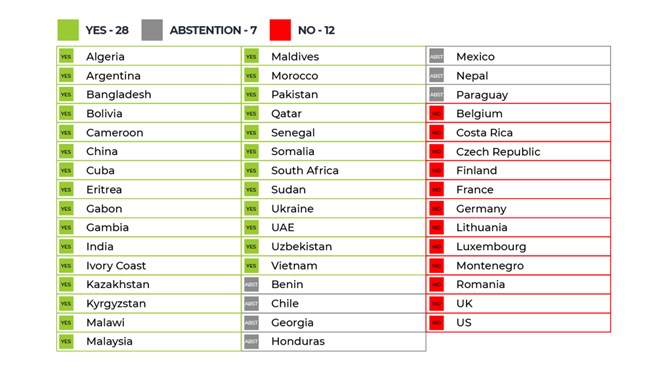In response to the recent Quran-burning incident in Sweden, which sparked widespread protests in the Muslim world, the United Nations Human Rights Council (UNHRC) has passed a resolution aimed at combating religious hatred and bigotry. However, the resolution faced opposition from the United States and the European Union, who expressed concerns about its potential impact on freedom of expression and human rights. The urgent debate, initiated by Pakistan and other Organization of Islamic Cooperation (OIC) countries, led to a call for action to prevent acts and advocacy that incite discrimination, hostility, or violence based on religion.
Global Concerns Trigger Urgent UNHRC Debate
The desecration of the Quran by an Iraqi immigrant outside Stockholm’s main mosque during the Eid al-Adha holiday sparked significant concerns among Muslim nations. Pakistan, along with other OIC countries, successfully initiated an urgent debate at the UNHRC to address the incident and its broader implications. The debate shed light on the urgent need to prevent acts of religious hatred and bigotry, prompting a collective call for action from member nations.
Resolution Calls for Preventive Measures and Prosecution
The approved UNHRC resolution emphasizes the importance of taking proactive measures to prevent and prosecute acts and advocacy that promote religious hatred. Member countries are urged to combat incitement to discrimination, hostility, or violence based on religion. By adopting this resolution, the UNHRC aims to promote religious tolerance and respect, seeking to curb inflammatory actions that target Muslims, as well as other religions or minority groups.
Diverging Opinions Highlight Clash between Freedom of Expression and Combating Religious Hatred
While the Quran-burning incident was unequivocally condemned by Sweden, the country also asserted its commitment to constitutionally-protected rights of freedom of assembly, expression, and demonstration. This stance was echoed by the United States and the European Union, which opposed the resolution on the grounds that it may impinge upon fundamental human rights. The clash between the need to combat religious hatred and the preservation of freedom of expression remains a contentious issue, sparking a debate within the international community.
The UNHRC’s resolution on religious hatred and bigotry serves as a response to the Quran-burning incident in Sweden, aiming to prevent and prosecute acts that incite discrimination, hostility, or violence based on religion. While concerns were raised by the United States and the European Union regarding potential conflicts with freedom of expression, the urgent debate and subsequent resolution highlight the international community’s commitment to combating religious intolerance and promoting respect and harmony among diverse faiths.
















